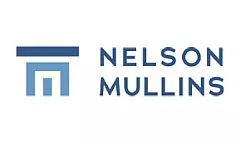- within Media, Telecoms, IT and Entertainment topic(s)
- with Senior Company Executives, HR and Finance and Tax Executives
- in United States
- with readers working within the Basic Industries, Business & Consumer Services and Consumer Industries industries
As your company prepares to enter the U.S. market, it is essential to understand and comply with the Federal Trade Commission's (FTC) advertising and labeling regulations. These rules are designed to protect consumers from deceptive marketing and ensure fair competition. For foreign manufacturers, compliance is not optional and violations can result in significant penalties.
Key FTC Advertising Rules to Know
1. Truth-in-Advertising Standard
The FTC requires that all advertising be:
- Truthful and not misleading
- Substantiated (i.e., claims must be backed by evidence)
- Fair, especially in comparative advertising or performance claims.
This applies to all marketing materials, including websites, packaging, brochures, and digital ads.
2. Country-of-Origin Claims
If your company plans to reference the origin of your products (e.g., "Made in Germany"), you must:
- Clearly and accurately disclose the country of origin
- Avoid implying U.S. origin unless the product meets strict FTC standards.
The FTC's Made in USA Labeling Rule prohibits unqualified "Made in USA" claims unless the product is "all or virtually all" made in the U.S. For imported products, the U.S. Customs and Border Protection (CBP) also requires country-of-origin labeling.
3. Performance and Safety Claims
If your products are marketed with performance claims (e.g., "lasts 3x longer" or "reduces vibration"), the FTC requires:
- Competent and reliable evidence, which may include scientific testing or industry-standard benchmarks
- Clear disclosures if results vary by use case or material.
4. Endorsements and Testimonials
If using endorsements (e.g., from U.S. distributors or industrial clients), ensure:
- Endorsers are real and their experiences are typical
- Any material connection (e.g., payment or free products) is disclosed.
Risk of Non-Compliance
The FTC has stepped up enforcement in recent years, including against foreign companies. Violations can lead to:
- Civil penalties
- Injunctions or product bans
- Reputational damage in the U.S. market.
Recommendations for Foreign Manufacturers
- Review all marketing materials for compliance with FTC standards
- Avoid unqualified "Made in USA" claims
- Ensure all performance claims are substantiated
- Consult with U.S. counsel before launching advertising campaigns.
The content of this article is intended to provide a general guide to the subject matter. Specialist advice should be sought about your specific circumstances.



